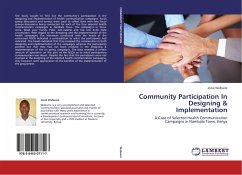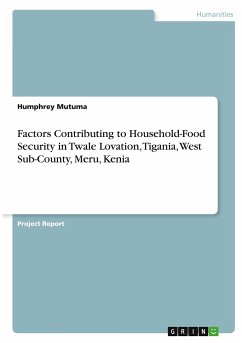Although it is expected that Long-Acting and Permanent Methods of Contraception should be more acceptable owing to greater benefits, they have engendered considerable controversy. Political, ethical, and safety questions have emerged, stemming from the ways in which these contraceptives have been developed and used over the course of this century. At the heart of the concern is the issue of reproductive rights and freedom. While many researchers have assessed demographic and socio-cultural factors influencing contraceptive use in Africa, few attempts have been made to assess the same in Kenya. This book examines socio-economic and communication-based socio-cultural factors that can encourage or inhibit the up-take of LAPMs including problems associated with their use such as the prospects of new methods that are likely to emerge from ongoing research and development. It also examines the use and/or abuse of LAMPs and describes new reproductive health shifts. Thus this book will be especially useful to Medical and community health workers, community media workers and policy makers.








